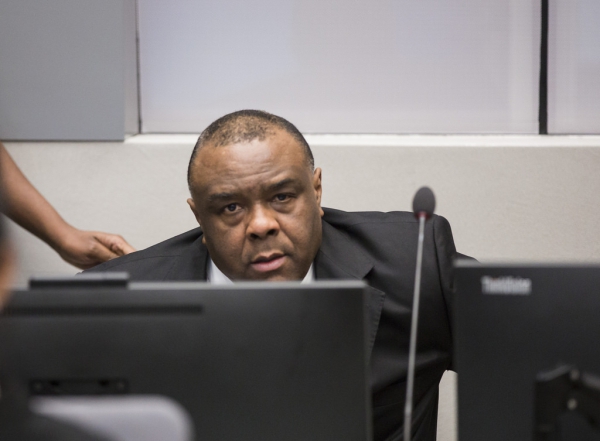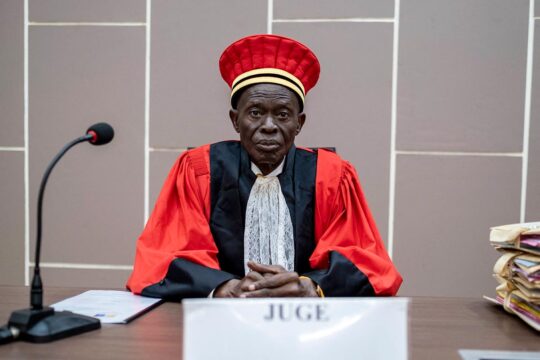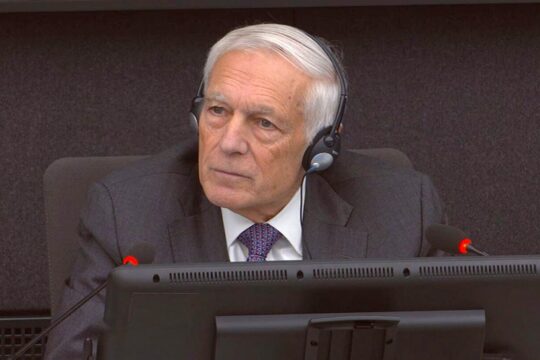The International Criminal Court’s conviction of former Congolese Vice-President Jean-Pierre Bemba on March 21 was the first ever judgment handed down for international crimes committed in the Central African Republic (CAR). Many observers say this judgment for crimes committed in 2002-2003 should encourage the Central African authorities and all those involved in international and national justice to speed up investigations into the innumerable grave violations of human rights committed in the CAR, mainly by Central Africans, since 2012.
Congolese opposition leader and rich businessman Bemba was found guilty for rapes, murders and looting committed by his former MLC rebels not in his own country but in the neighbouring CAR. At the end of 2002, he deployed some of his troops there to help the CAR president at that time Ange-Félix Patassé fight a rebellion led by François Bozizé. Bozizé nevertheless managed to seize power and then ruled the former French colony as if it were family property, which helps explain why he was in turn overthrown in March 2013. Since then, the CAR has been plunged into the deepest crisis of its history, with an unprecedented level of grave human rights abuses.
In May 2014, as the Bemba trial was drawing to a close, the CAR’s transitional president Catherine Samba-Panza filed a new request to the International Criminal Court (ICC), asking it to investigate and prosecute those responsible for crimes committed in the country. In response, ICC Prosecutor Fatou Bensouda opened a second investigation in the CAR on September 24, 2014. But no arrest warrant has yet been issued, as Human Rights Watch (HRW) and the International Federation for Human Rights (FIDH) note with regret. “While Bemba’s guilty verdict is important, it is also clear that the ICC’s job is far from over in the Central African Republic,” writes Géraldine Mattioli-Zeltner of HRW’s International Justice Program, saying the ICC Prosecutor “should develop an overall plan to tackle” cases linked to the most recent crisis in the CAR. “ICC member countries, which have insisted on a stringent ICC budget, should instead make sure the court has sufficient resources to do its job,” she continues. “The Bemba verdict should spur on this effort.”
Much to be done
In Geneva, UN High Commissioner for Human Rights Zeid Ra'ad Al Hussein issued a statement welcoming the Bemba judgment, but also said that: “Much remains to be done to ensure justice for the many other terrible crimes that have been committed in CAR since 2002, not least the large-scale violations and abuses committed over the past three years.”
And FIDH says: “The new Central African authorities and the international community must continue to support accountability mechanisms for international crimes being committed in CAR.”
The CAR has just held elections to end a three-year transition period. New President Faustin-Archange Touadera is due to be sworn in at the end of March. Human rights groups are urging the next government to facilitate the new investigations opened by the ICC and set up as soon as possible the Special Court whose founding texts have already been adopted by the transitional institutions.
“It is of foremost importance to establish the Special Court without further delays and to continue to support the ICC in its second and ongoing investigation on the crimes committed since 2014,” says FIDH president Karim Lahidji in a statement by his organization following the Bemba verdict.
A similar call was made on March 16 by UN Independent Expert on the situation of human rights in CAR Marie-Thérèse Keita-Bocoum, after a meeting with the President-elect. According to the UN news service, she called for stronger “efforts to fight against impunity, ensuring that jurisdictions become operational and strengthening the independence of the judiciary”. “All the actors of the civil society I met deplored the absence of the criminal justice system, the lack of access to justice and the lack of measures to protect victims and witnesses,” she said in the statement.
UN pledges support
In an interview published the same day by the UN news service and the UN Radio, the Secretary General’s Special Representative for the Central African Republic Parfait Onanga-Anyanga expressed similar sentiments, saying that transitional justice is an immense challenge for the new authorities. The Gabonese diplomat promised UN support for the Special Court. “We must now help them to identify the international magistrates who will be the judges along with national magistrates,” he said. “We worked with the Central Africans to help draw up the law establishing this Court. And now we need to do a lot of lobbying to gather the immense resources that will be needed to allow this important institution to function. It is a question of wide-ranging technical assistance, and we are doing it in collaboration with the CAR’s main donors.”
The success of these efforts will depend a lot on the political will of President Touadera and his team.







